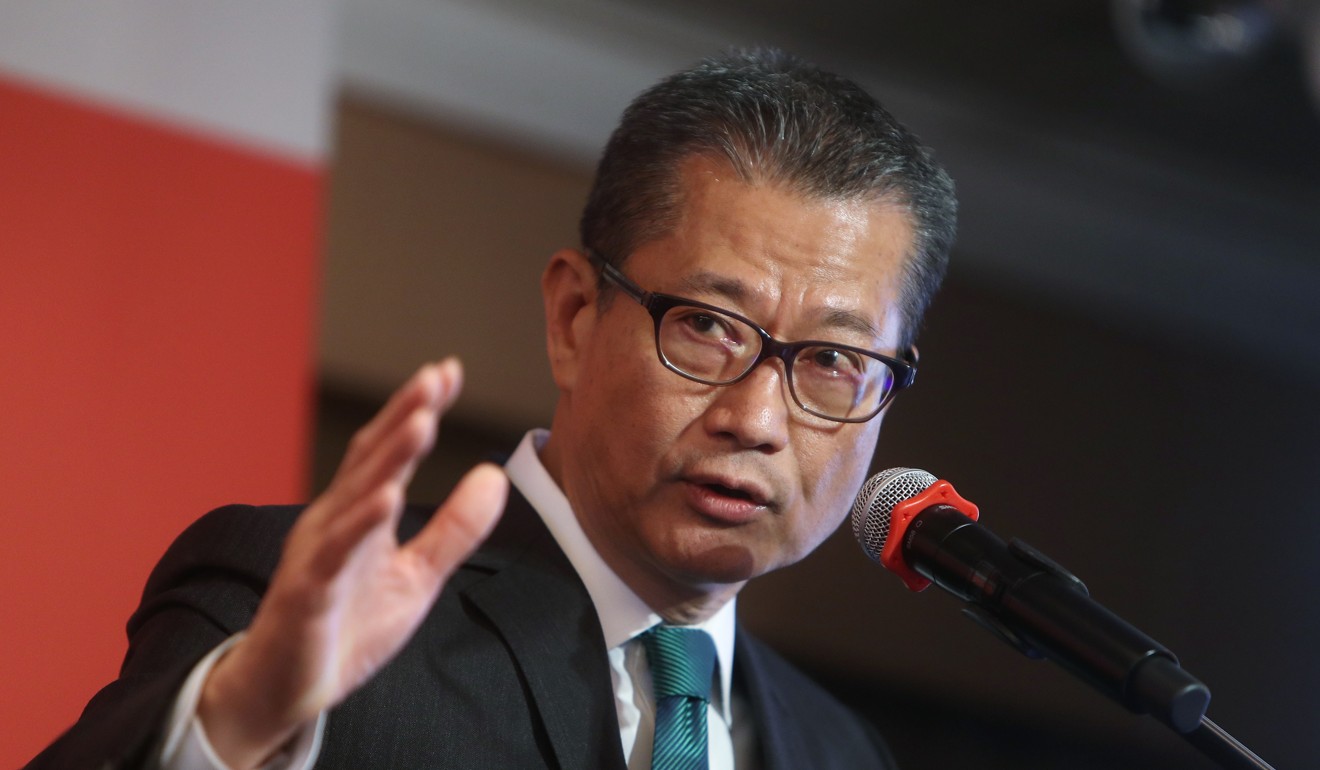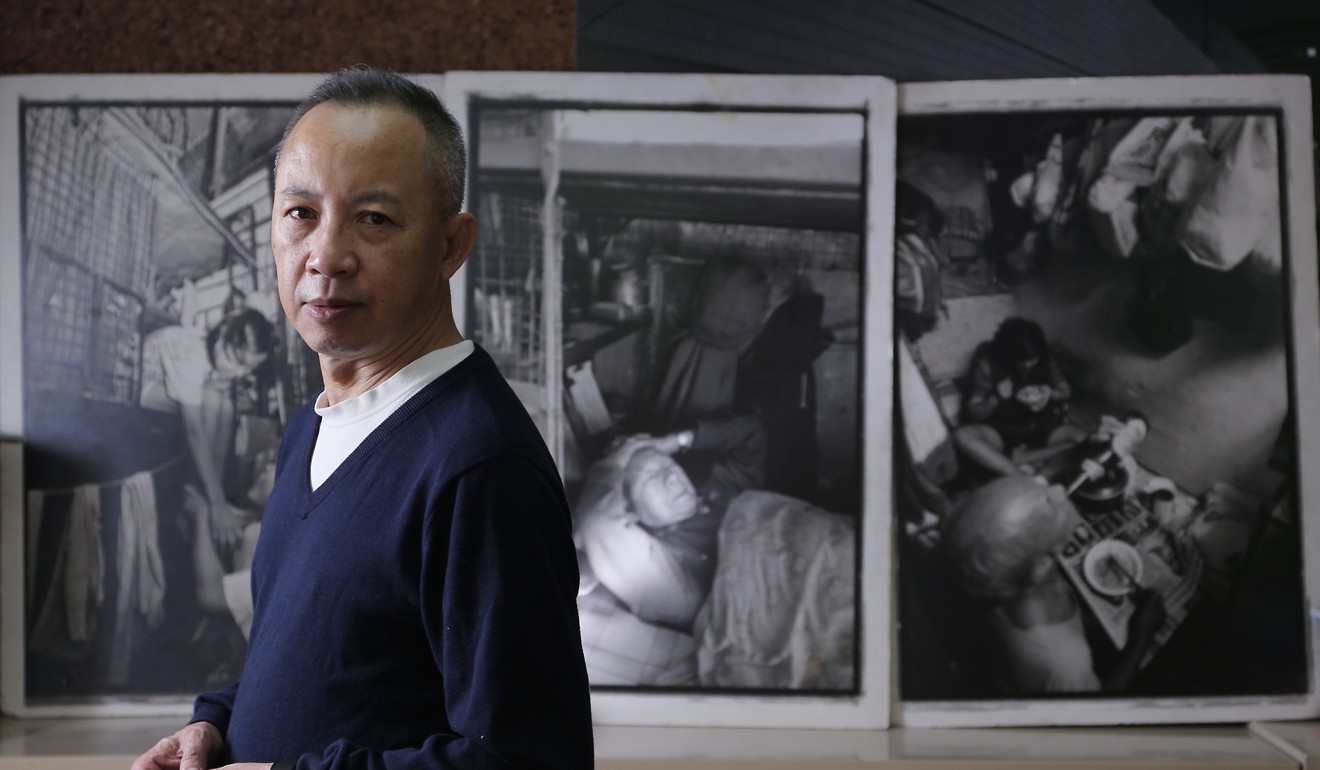
Hong Kong government pledges more support for Urban Renewal Authority if it helps with subsidised housing shortage
City’s finance minister Paul Chan says the URA will not need to worry about resources should it play a role in the ‘starter homes’ pilot project
The organisation tasked with tackling urban decay in Hong Kong was assured by the city’s finance chief on Tuesday that officials would offer greater financial support if the body took a bigger role in providing subsidised homes.
Financial Secretary Paul Chan Mo-po made the pledge as the Urban Renewal Authority’s board endorsed a proposal from the city’s leader last month to use one of its properties for a “starter homes” pilot project – a subsidised flats scheme dedicated to fulfilling the home ownership aspirations of middle-income families.
“Going forward, if the URA is going to be more involved in the development of subsidised flats for sale and requires more financial help, there is no need to worry about resources should the government agree with such a policy direction,” Chan said.

A total of 450 units will be sold under the new starter homes scheme by the end of this year at the earliest, with its residents slated to move in by the middle of next year.
Tearing down buildings is not best strategy, says chief of Hong Kong’s Urban Renewal Authority
The flats, ranging from 260 to 510 sq ft, would be sold at a discount of between 28 and 38 per cent of their existing market value. This would translate to HK$16,920 to HK$14,570 per sq ft, according to the proposal.
The URA had yet to discuss what the exact discount rate should be, board members said.
Only Hong Kong permanent residents who have never owned any property in the city would be eligible to apply.
Applicants will also be subject to certain income and assets limits. Single applicants can only apply if they earn a monthly income of between HK$28,501 and HK$37,050, while the limit for households with more than two people would be between HK$57,001 and HK$74,100.
Chan said it was not likely the URA would see any large deficits.
Owners of the flats would not be allowed to sell the home on the open market for at least five years, according to the proposal.
Lawmaker Wu Chi-wai, who is also a non-executive director and non-official member of the board, said they had approved the general framework of the scheme, but admitted that the URA did not have much room to fine-tune any details because it was a government-led scheme.
Hong Kong’s Urban Renewal Authority makes record offer for buildings in Sai Ying Pun
Wu said there was a need for the government to decide whether this was a one-off project for the URA, or if it was going to be a long-term scheme.
Dr Lawrence Poon Wing-cheung, senior lecturer at City University’s division of building science and technology and a non-executive director and non-official member of the authority’s board, and Thomas Lam Ho-man, a senior director at international property consultancy Knight Frank, agreed that the authority would need more financial support from the government if building subsidised housing became its regular job.
The URA was established in 2001 to undertake and facilitate urban renewal in Hong Kong, with an aim to address the problem of urban decay.
While it enjoys a range of advantages such as being exempt from paying the government a hefty sum to develop a site like other property developers, it needs to compensate owner-occupiers with roughly the value of a seven-year-old flat in the same neighbourhood when acquiring flats.
It adopts a self-financing operation model. According to its 2016-17 annual report, the authority recorded an accumulated surplus of HK$22.6 billion.

Veteran grass-roots worker Ho Hei-wah, director of the Society for Community Organisation, said the government should also push the authority to build low-rent flats.
“Money should not be a problem,” Ho said. “The government has a lot of money. And it is long overdue that the authority should adjust its role. It should not act like a private developer and aim to make huge profits by selling redeveloped flats at market prices.”
The main two providers of public housing in Hong Kong are the Housing Authority and the Housing Society. But the URA was asked three years ago to help meet ambitious targets for the building of new subsidised flats, currently at 8,000 a year. Under its 10-year housing supply target, the government will also provide 20,000 public rental flats and 18,000 private flats a year.
Additional reporting by Ng Kang-chung

